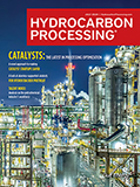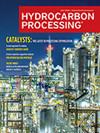S.Korea's Hanwha Total buys U.S., Australian condensate to replace Iran oil
SEOUL/SINGAPORE, Aug 23 (Reuters) - South Korea's Hanwha Total Petrochemical Co Ltd has increased imports of condensate from the United States and Australia and is seeking more European cargoes to replace Iranian supplies, two industry sources said on Thursday.
The move is in line with other South Korean refiners that have replaced Iranian oil with similar imports.
The petrochemical producer bought 1 million barrels of U.S. Eagle Ford condensate for November arrival, and it has also stepped up imports from Australia, recently buying Wheatstone condensate for October delivery, the sources said.
The purchases were part of Hanwha Total's efforts to replace Iranian condensate ahead of renewed sanctions on Iran in November, one of the sources said. The sources declined to be named as they were not authorized to speak to media.
South Korean refiners and petrochemical producers suspended shipments of Iranian crude and condensate in July, halting all shipments for the first time in six years amid U.S. pressure to cut all imports from Iran from November.
South Korea in turn increased its condensate imports from Australia and will lift two 650,000-barrel cargoes of North West Shelf (NWS) condensate in August, the highest volume since March 2015, trade flows data on Thomson Reuters Eikon showed.
South Korean companies have also bought NWS condensate loading in September and October, several trade sources said.
South Korean banks have halted payment for Iranian oil ahead of the U.S. sanctions that will take effect from November, although Seoul is still working to get a waiver from Washington to import some oil from Iran, other industry sources said.
Before the suspensions, South Korea had been the largest buyer of Iranian South Pars condensate (SPC) with imports as high as 6 million barrels in June 2017. The condensate, or ultra light oil, is typically processed at refining units known as splitters to extract heavy naphtha for aromatics production.
The loss of Iranian supplies meant Korean buyers had to find and settle for other sources of oil that are not great replacements for SPC as their heavy naphtha yields are lower, trade sources said.
In addition to using substitute condensates, South Korean petrochemical companies, such as Hanwha Total, have also been ramping up imports of cheaper heavy naphtha, they said.
Hanwha Total has been importing an average of 250,000 tonnes of heavy full-range naphtha a month this year versus 150,000 tonnes a month in 2017, traders said.
It paid a $3-a-tonne premium to Japan quotes on a cost-and-freight (C&F) basis for heavy full-range naphtha on Tuesday, down from this year's high of nearly $17 a tonne.






Comments